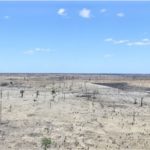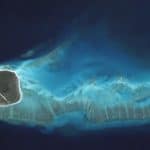Morondava and its baobab avenue
The city of Morondava is known for its famous Baobab Avenue marked. Most tourists passing through this city inevitably offer themselves as souvenirs for magnificent photo shoots on this avenue. It must be said that these majestic trees in the south of the island provide a perfect backdrop for an idyllic trip to this exotic island that is Madagascar. If you want to complete your trip with imperishable souvenirs, a visit to the city of Morondava a must, the same goes for sophisticated photo trips.
Allée of Baobabs the most photographed site in Madagascar
The Baobab Alley is a true boulevard of baobab trees and was protected as a "natural monument" only in July 2007.

The spectacular avenue of Adansonia Grandidieri Baobabs "the road of the baobabs" is located 20 kilometers north of Morondava. Quite simply extraordinary, these upside down growing tree giants that grow along the road to Bekopaka are lined up offer an amazing spectacle.
Baobabs are one of the most important natural curiosities of western Madagascar. An impressive specimen, considered the "sacred baobab tree," rises on the side of RN 35, slightly 
At the bend of the track that leads to Mangily leads, you will be enchanted by the "baobab in love"...
On the same street, a little further from Baobab Avenue, is the Andranomena Nature Reserve and Marofandilia.
What you need to know about the city
The city of Morondava belongs to the province Tulear or Toliara for the locals. It is located in the southwest of the Big Island. To get there, you have to take the RN7 road to Antsirabe, covering a distance of about 680 km from Antanarivo.
Different ethnic groups live in harmony in this region, but the Sakalava are the dominant group. It is a coastal city, located on the Mozambique Channel, the climate is very warm and dry throughout the year.

This city in the southwest is also crossed by two rivers, the Mangoky and the Manambolo, where you can make voyages of discovery.
Activities in Morondava and further surroundings:
The Tsingy of Bemaraha
From Morondava you have to travel a distance of about 200 km in the direction of the village of Bekopaka cover. To enjoy a journey full of discoveries, the roads are passable by motorcycle from May to November. 
The nature reserve Tsingy de Bemaraha includes karst landscapes and limestone plateaus cut into impressive "tsingy" peaks and a "forest" of limestone needles, the spectacular gorge of the Manambolo River, rolling hills and high peaks. The undisturbed forests, lakes and Mangrove swamps are the habitat for rare and endangered lemurs and birds.
In addition, the Great Tsingy, formed by nature over millions of years, offers you a spectacular view.
A tour to visit the Great Tsingy
The large tsingy are located in Andamozavaky. From Bekopaka village it is 3 hours walk to the feet of the dazzling rock massifs. It is an ideal place for lovers of mountaineering and climbing. Visiting the site will take some time, as it covers more than 72,300 ha.

The view down from the suspension bridge is something to be avoided for those slightly afraid of heights.
A two-day hike with tents inside the park is also possible (Anjohimanintsy path). This tour is a combination of several shorter treks up and down the Tsingy formations, visiting an underground cave and discovering the various plants and animals that share the different ecosystems.
The little Tsingy
The little Tsingy: This 4-5 hour walk takes you through a labyrinth of limestones and two viewpoints over the impressive peaks. There is a good chance of spotting the Decken's sifaka and the red-fronted brown lemurs.
The Manambolo Gorge: It is a canoe trip along the gorge combined with an easier path through caves, stalactites, stalagmites and the famous family tomb of the Vazimba tribe.
Sakalava Tombs
When you arrive in Morondava, you will fall in love with the beauty of the region and its cultural richness. People in this part of Madagascar are very conservative. Rituals and traditions have passed the time survived and are part of the heritage of successive generations. To bathe in this traditional atmosphere, you can visit the famous Sakalava tombs. These are among the most popular tourist attractions in the city. You will also discover a grave art of the Sakalava people. Frescoes, drawings, statues decorate the ancient tombs and tell the story of the deceased during their lifetime. In some places you will be able to distinguish different offerings that are offered to ask the blessing of the spirits. If you are interested in discovering the few remains of Sakalava's past, you must be accompanied by a guide. These tombs are considered sacred sites, so you will need permission from the local authorities before entering them. However, it is an extraordinary experience that you must have if you want to make your stay in Morondava a success.
A culinary journey to the heart of Morondava
As a coastal town in the south of the country, Morondava also offers its visitors an incomparable culinary journey. The marine products that live from fishing are the dominant culinary specialties of the region. During your escapade, let yourself be tempted by the exotic, flavorful dishes that the locals will offer you. Lobster, shrimp, crab and local fish "à la Malagasy" are served grilled, fried, skewered or flambéed with dzamandzar. This rum is a specialty of the Big Island. It is characterized by its delicate flavor that leaves a juicy aroma in the mouth. You can also prepare tasty dishes with Combava sauce taste. It is a citrus fruit that is very present in the Morondava region. Tasted, it brings freshness to your dishes. Dishes like the Madagascar shrimp with Cashew nut sauce or the famous Madagascar lobsters will make your taste buds travel to the heart of the exoticism and beauty of Morondava.
Bird whatching in Tsiangajoly
The Lodge de la Saline is only two hours drive from Morondava, it is a 4 star hotel complex located in the heart of a 2,500 hectare private reserve. This establishment combines luxury and respect for the environment. The discovery par excellence!

In detail, the hotel offers 8 cottages (1 to 3 pax), 7 bungalows (1 to 2 pax), 1 villa (1 to 7 pax), one group accommodation (1 to 14 pax) and one camping (1 to 30 pax). Each room is equipped with high quality bed linen, air conditioning, wifi, TV, safe and shower. The villas are equipped with a kitchen, while the campsite is equipped with comfortable tents.
The restaurant serves Gourmet meals based on fresh seafood and "100% organic" products from the Lodge farm. The hotel also has a bar and a terrace to admire the sunset.
In addition to the tourist services, the Environmental protection the focus of the activities of the lodge. In addition, every year in the region Reforestation projects carried out. In addition, the hotel offers its clients sustainable and responsible activities such as whale safaris, fishing trips, immersion in the daily life of fishermen, meetings with lemurs living in the wild in the lodge, resettlement of lemurs in their natural environment, excursions in the mangroves, trekking, bird watching, canoeing, visits to the salt mines...The reserve and the absolutely intact Mangrove forests offer one of the best places for Ornithological trips.
Kirindy Private Reserve or Forest Reserve
This reserve, 60 km northeast of Morondava, covers about 12,500 hectares and is a protected area that is at 
Kirindy Mitea
Kirindy Mitea is a place of extreme seasonal changes. Just like Kirindy Private Reserve, there is a hot rainy season (December to February) when temperatures can reach 40°C. During this short rainy season, the forest turns green and all the reptiles and amphibians become active. After this explosion of life, there are nine months of warm temperatures and little rain, during which many animals are in hibernation.
Currently, there are a pair of walking trails through the park.
A circular trail leads through the majestic sand dunes to the lakes Sirave and Ambondro. Here you can admire the different types of forest and the huge baobab trees, observe water birds and reptiles and, of course, swim at one of the beautiful beaches.
Another trail leads through the dry, dense forest in search of lemurs, birds and baobabs.
It is also possible to explore the mangroves by canoe and observe water birds and some bats.
















